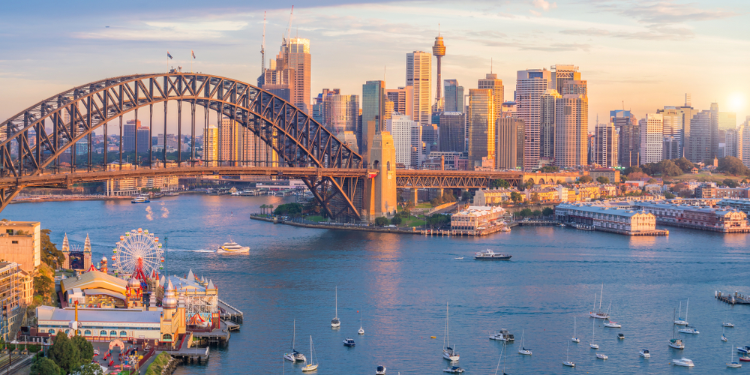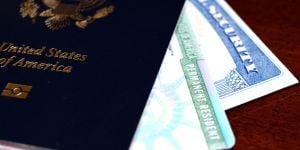
While Australia has chosen to keep its borders closed until January 2021, it is gradually opening up to highly qualified foreign professionals under certain conditions. Early September, the government announced a new priority skills list that should help boost the post-COVID-19 economic recovery. So if you have the right set of skills and you've always dreamed of working in Australia, start backing your suitcase.
The Australian economy has been relying on the contribution of highly skilled foreign professionals for many years. This is why the government came up with a new Priority Migration Skilled Occupation List (PMSOL) that allowed the relaxation of entry for skilled foreigners in Australia and the strengthening of the labour market study. The list includes 17 priority occupations in sectors that are facing a labour shortage, namely construction, healthcare and information and communication technology. These include the positions of Chief Executive or Managing Director, Construction Project Manager, Mechanical Engineer, General Practitioner, Resident Medical Officer, Psychiatrist, Medical Practitioner not elsewhere classified, Midwife, Registered Nurse (Aged Care), Registered Nurse (Critical Care and Emergency), Registered Nurse (Medical), Registered Nurse (Mental Health), Registered Nurse (Perioperative), Developer Programmer, Software Engineer, Maintenance Planner.
So if you have these skills, you can apply for an exemption to travel restrictions. To be eligible for a visa in accordance with the PMSOL, you must be sponsored by an employer. It's worth noting that although the crisis has slowed down the processing of visa applications, priority is given to nominations and visas under the PMSOL. Still, other categories such as the Temporary Skill Shortage (TSS) visa (subclass 482), the Skilled Employer-Sponsored Regional (Provisional) visa (subclass 494), the Employer Nomination Scheme (ENS) visa (subclass 186) and the Regional Sponsored Migration Scheme (RSMS) visa (subclass 187) remain active.
Besides, all foreign professionals arriving in Australia on a sponsored visa will be quarantined for 14 days at their own expenses.
What does this mean for the Australian labour market?
The government is ensuring that Australians are prioritised, given the rise in the unemployment rate, which is now at 7.5%. More than a million employees lost their jobs since the start of the crisis. Hence, labour market testing is strongly recommended before hiring foreign professionals to fill the positions mentioned on the PMSOL. Currently, employers are required to post two advertisements for 28 days on an Australian job board, in newspapers, on the radio, as well as on their company's website if accredited. Under the new arrangements, the employer is also required to publish the job ad on the official employment portal, JobActive, so that qualified Australians and permanent residents get the chance to apply before they hire foreign professionals. In other words, your application will only be considered if the skills required by employers are not available locally.
A sharp decline in the number of foreign professionals
With the borders closed, the number of foreign professionals in Australia is decreasing. As of July 2020, according to official figures, more than 4,100 skilled workers holding temporary visas had already left the country. The number of Skilled Temporary Visa holders dropped from 200,000 some 7 years ago to only 130,000 in June 2020. However, the number of visa applications under this category had already started declining before the COVID-19 crisis. In the 2nd quarter of 2020, only 326 new such visas had been issued compared to 20,000 annually over the past decade. Moreover, according to a study by Unions NSW among 5,000 temporary visa holders, 65% of them had already lost their jobs from March to April 2020 while 39% were struggling to meet their daily expenses and 34% became homeless due to unpaid rents.
Besides, due to the delay in presenting the federal budget, the Department of Home Affairs has decided to grant 5,169 interim places to all states for 4 months, from July 1 to October 31, 2020. South Australia got the largest share with 900 in total for the Skilled Migration Visa category. Victoria received 800 and New South Wales 700. A large number of business and investor visas have also been granted, particularly to Victoria, which has been affected the most.
International students in limbo
The government announced on July 20, 2020, that international students can now apply for student visas. Conditions relating to the Temporary Graduate (subclass 485) visa have been amended so that students who have studied remotely, that is from their home country, during the crisis can fly to Australia with an appropriate visa once the travel restrictions have been lifted. However, these changes are still overdue. Today, many international students who have already completed their studies in Australia but are currently stranded abroad are left wondering whether they can apply for a Post-study Work Visa to be able to return to Australia. In fact, the application must be made in Australia within 6 months of graduation.
Hong Kong passport holders are luckier. Since July 9, 2020, students and graduates holding temporary visas are eligible for a 5-year extension. Moreover, students and temporary workers who live far from major cities are eligible for permanent residence after 3 years. Temporary Skills Visas applicants are also eligible for the 5-year extension if their skills are mentioned on the new PMSOL.



















